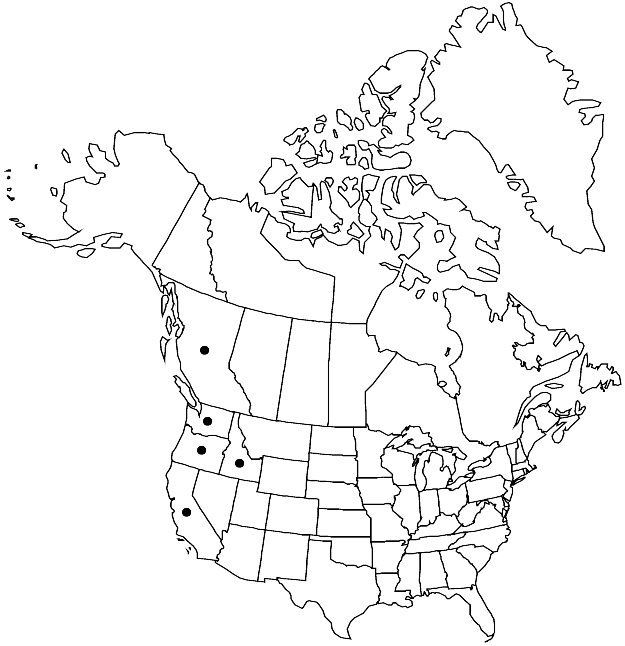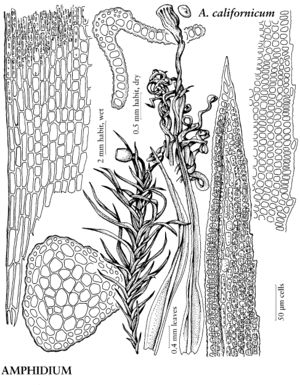Amphidium californicum
in H. G. A. Engler and K. Prantl, Nat. Pflanzenfam. 215[I,3]: 460. 1902.
Plants 1–4 cm. Stem leaves linear-lanceolate, 1.5–4 mm; margins recurved, toothed or entire proximally, toothed or notched distally; basal laminal cells yellowish, walls thick; distal cells 9–11 µm, slightly obscured by papillae, papillae elliptic, small. Sexual condition dioicous; perichaetial leaves elongate, narrow, base subsheathing, apex long-pointed. Seta 1.5–2 mm. Capsule immersed to emergent, 1.2–1.6 mm; operculum conic-apiculate, less than diam. of capsule. Spores 10–15 µm.
Habitat: Crevices of neutral to acidic rock
Elevation: moderate elevations
Distribution

B.C., Calif., Idaho, Oreg., Wash.
Discussion
Amphidium californicum is distinguished by the linear leaves with notched distal margins. Amphidium lapponicum has decidedly broader leaves and distal cells obscured by large, warty, cuticular papillae.
Selected References
None.
